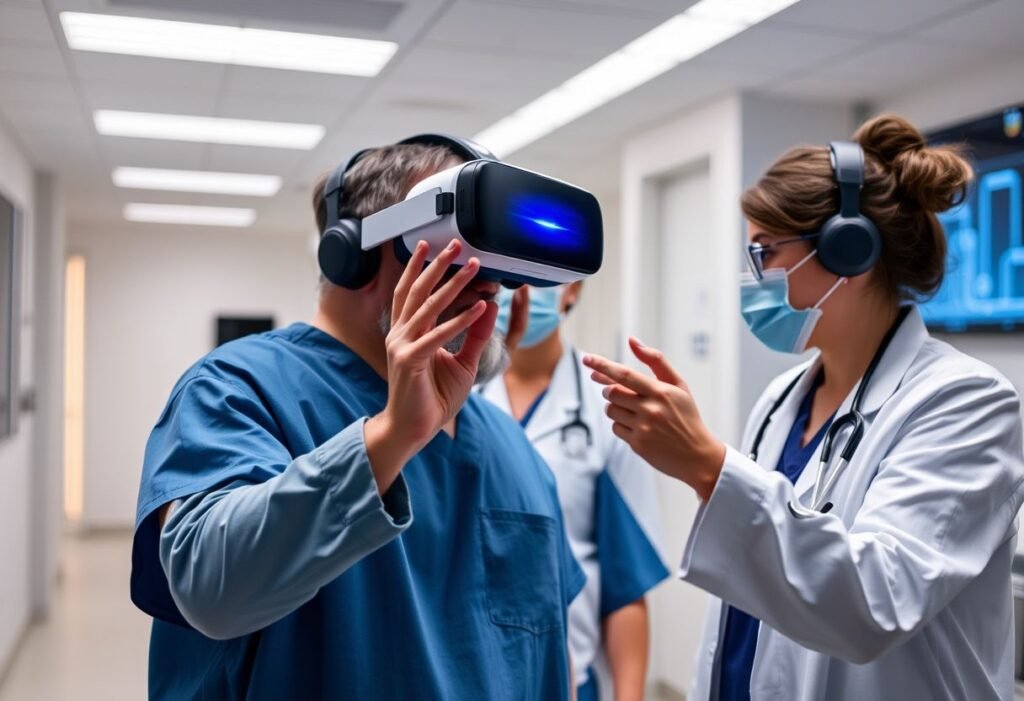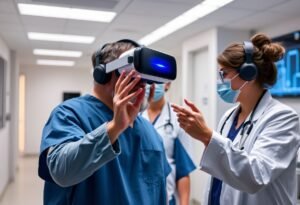The integration of Virtual Reality (VR) in healthcare is on the brink of revolutionizing patient care and therapy through innovative solutions. As technology continues to advance, the potential for VR in the medical field is becoming increasingly compelling, promising enhanced outcomes for both patients and providers.
Transforming Medical Training through Immersive Simulations
Medical professionals around the world are utilizing VR technology to enhance their training programs. By immersing students in realistic scenarios, they can practice and hone their skills without the risk of harming patients. These simulations provide insights into complex surgical procedures and allow for real-time feedback, which can significantly improve a trainee’s competence before they enter the operating room. This innovative approach not only builds confidence but also prepares healthcare workers for unexpected challenges they may face.
Enhancing Patient Rehabilitation with Virtual Environments
Patients undergoing rehabilitation can greatly benefit from virtual environments designed for specific therapies. For instance, stroke patients can engage in tailored VR exercises that make rehabilitation more engaging and effective. The gamification of therapy sessions encourages patients to participate actively, often leading to quicker recovery times. This innovative use of VR not only improves physical rehabilitation but also addresses the emotional aspects of recovery, as patients find enjoyment in their progress.
Using VR for Pain Management Strategies
Incorporating VR experiences in pain management protocols is gaining traction as a non-invasive alternative to medication. Studies have shown that immersive VR can significantly reduce pain perception by distracting patients from their discomfort during procedures. This innovative method is being utilized in various settings, including burn wards and during dental procedures, highlighting VR’s potential to enhance patient comfort while providing healthcare professionals with a new tool for pain assessment and management.
Remote Consultations and VR Health Care Apps
The rise of telehealth has been further enhanced by the advent of VR healthcare apps. These applications allow healthcare providers to consult with patients in an immersive environment, making virtual appointments feel more personal and engaging. For patients in remote areas or those who have difficulty traveling, VR can bridge the gap between them and necessary medical consultations. Such innovations are revolutionizing patient access to healthcare while maintaining a high standard of interaction.
Empowering Mental Health Therapies with VR
Virtual Reality therapy is emerging as a significant tool for mental health treatment. By simulating anxiety-inducing situations in a controlled manner, therapists can help patients confront and manage their fears, offering a form of exposure therapy that is both safe and effective. With applications in treating disorders such as PTSD and phobias, VR is paving the way for innovative treatment modalities that enhance traditional psychotherapy approaches.
The Future of VR Integration in Healthcare
The future of VR in healthcare holds immense potential as technological advancements continue to unfold. As innovators push the boundaries of what is possible, we may see the advent of more personalized and adaptable VR solutions that cater to individual patient needs. Furthermore, the integration of AI and big data with VR can lead to tailored therapeutic experiences, optimizing patient treatment pathways and outcomes.
Disclaimer: The content provided in this article is for informational purposes only and should not be considered as medical advice. Please consult a healthcare professional for personalized guidance.


















